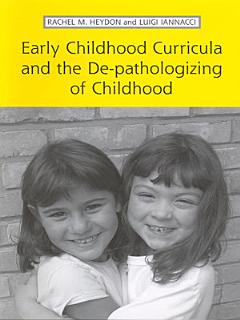Educators have become increasingly interested in the diverse learning environments of young children and the ways in which children and childhood are positioned within those environments. The documentation and analysis of processes of pathologization and de-pathologization in early childhood may provide scholars with the understanding needed to develop more responsive educational approaches. Early Childhood Curricula and the De-pathologization of Childhood examines what is possible for young children when their education addresses their assets and is organized in ways that expand their identity options.
Adopting an interdisciplinary approach, Rachel M. Heydon and Luigi Iannacci shed light on the ways in which joint notions of normality and abnormality are used to pathologize childhood. As teachers and educational researchers, they offer first-hand accounts of processes that take individual children and turn them into 'others' who are seen as deficient or 'at risk.' Through a variety of critical, qualitative case studies that examine general literacy education, special education, early childhood education, and intergenerational learning environments, this book highlights the theoretical underpinnings of asset-oriented curricular practices and suggests what is possible for young children when their education begins from and cultivates their funds of knowledge.
Written for those interested in improving the lives of children through interdisciplinary studies, this volume offers sustained theoretical engagement that will appeal to educators around the world.

